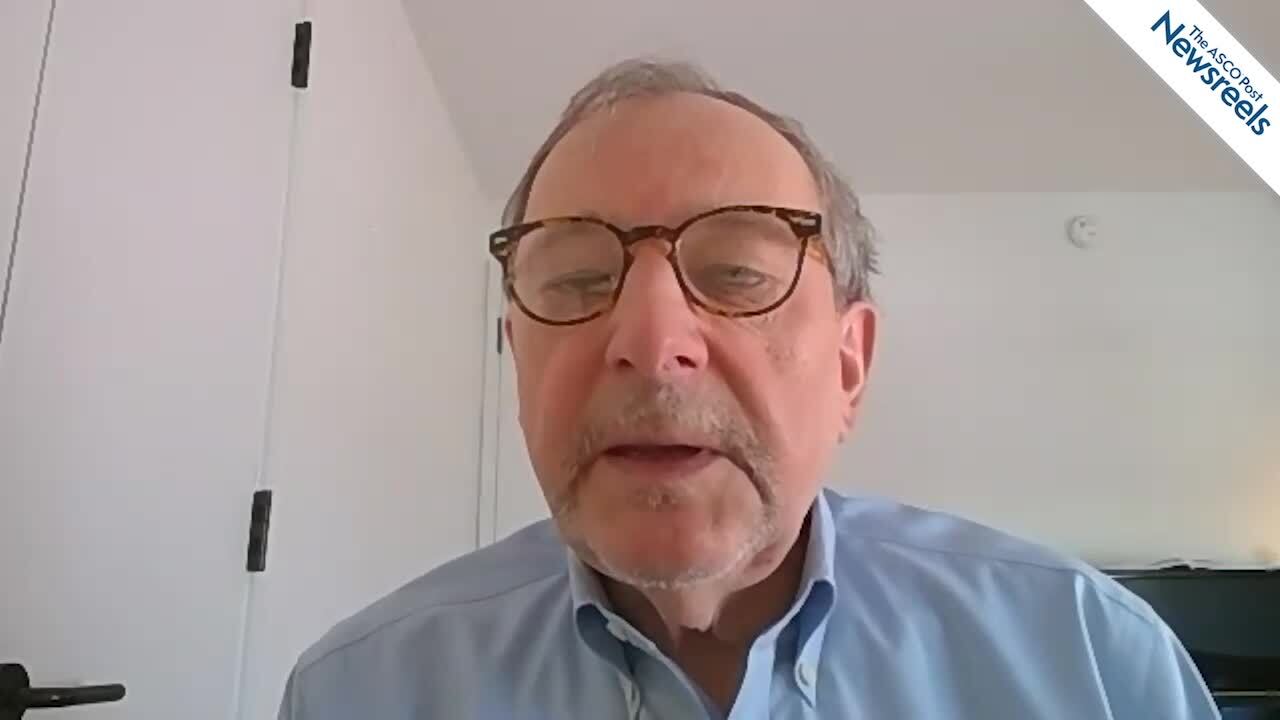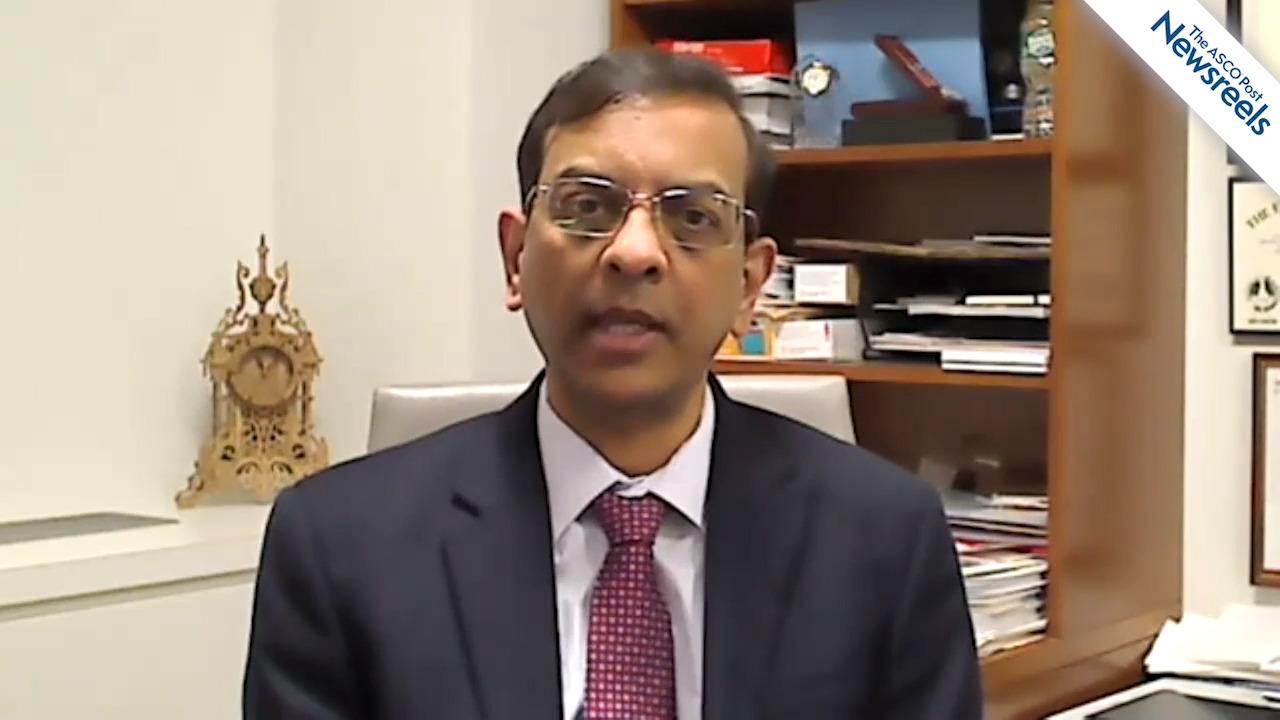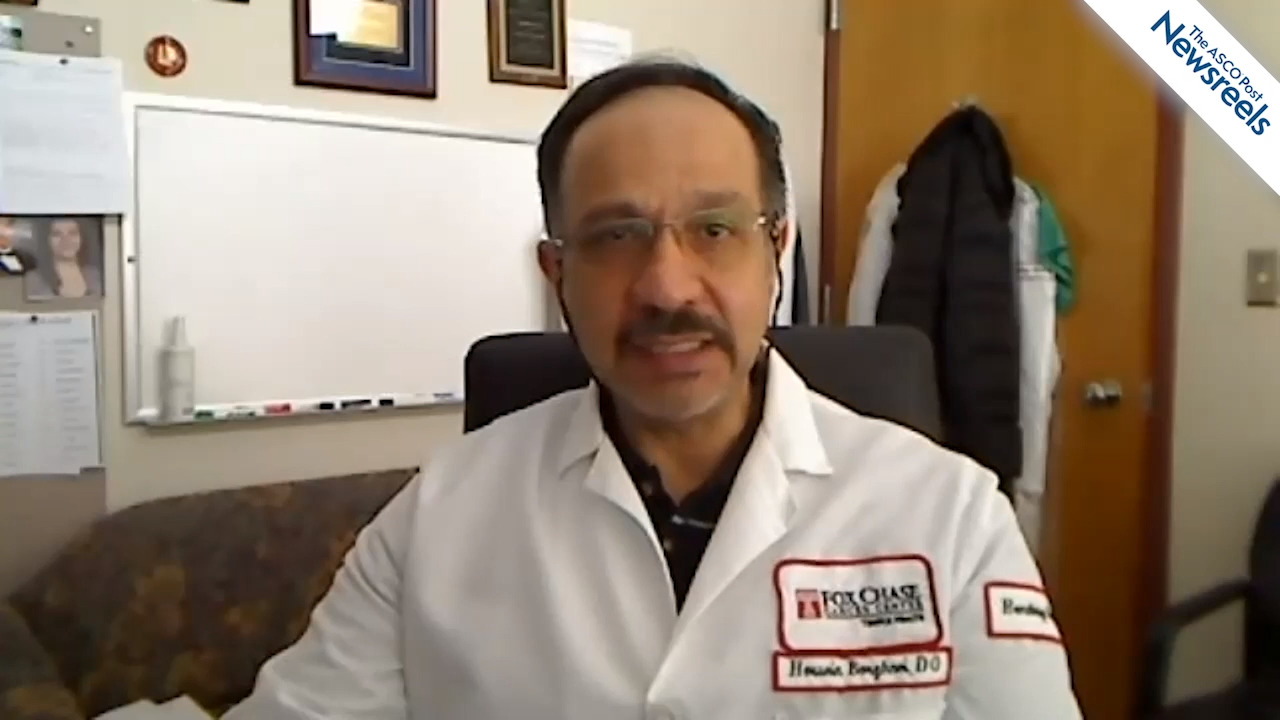Dean Fennell, FRCP, PhD, on Mesothelioma: Nivolumab vs Placebo in Relapsed Disease
IASLC 2020 World Conference on Lung Cancer in Singapore
Dean Fennell, FRCP, PhD, of the University of Leicester, discusses phase III results from the CONFIRM trial, which sought a standard immunotherapy treatment to improve overall survival for patients with mesothelioma who have relapsed after taking pemetrexed and cisplatin. Globally, the incidence of mesothelioma is on the rise; in the United Kingdom alone, it has gone up nearly 500% since the 1970s (Abstract PS01.11).
The ASCO Post Staff
Jill Feldman, a patient advocate and lung cancer survivor, discusses the current challenges and potential solutions to including more people of color and those in underserved communities in clinical trial research (Abstract PL04.06).
The ASCO Post Staff
Jill Feldman, a patient advocate who has lost five family members to lung cancer and is herself a 12-year cancer survivor living with EGFR-positive disease, describes her family history of cancer, how she has worked with her physicians for more than a decade to survive her own diagnosis, and the message she would like all oncologists to hear.
The ASCO Post Staff
Fred R. Hirsch, MD, PhD, of Mount Sinai Medical Center, invites his colleagues to enroll their patients in a large prospective study, for which he serves as Principal Investigator. The study is searching for solutions for treating patients with lung cancer who also have the coronavirus, because so many experience an aggressive course of infection.
The ASCO Post Staff
Prasad S. Adusumilli, MD, of Memorial Sloan Kettering Cancer Center, discusses ongoing CAR T-cell therapy clinical trials for solid tumors, the key determinants of success for developing this treatment, and some study results to date (Abstract PL03.05).
The ASCO Post Staff
Hossein Borghaei, DO, of Fox Chase Cancer Center, discusses phase I results from a study of AMG 757, an experimental bispecific T-cell–engager (BiTE) immune therapy aimed at the DLL3 molecular target in patients with small cell lung cancer. At this early stage, results show clinical efficacy and safety, with 37% of 51 evaluable patients exhibiting disease control (Abstract OA11.03).





